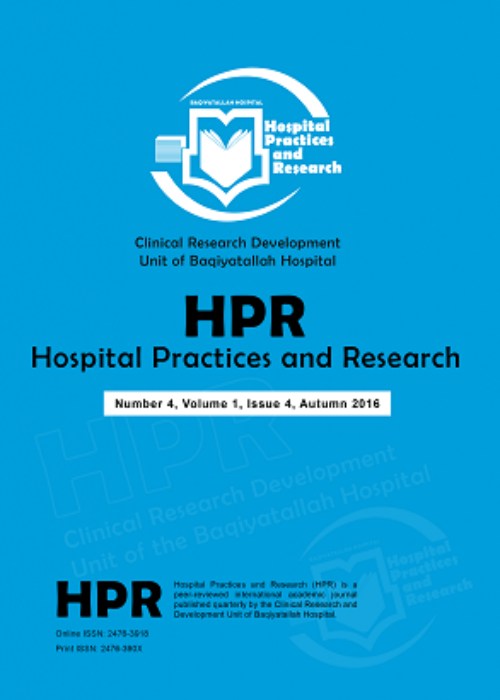Combined Effects of Race and Educational Attainment on Physician Visits Over 24 Years in a National Sample of Middle-Aged and Older Americans
Author(s):
Article Type:
Research/Original Article (دارای رتبه معتبر)
Abstract:
Background
The literature on Minorities’ Diminished Returns (MDRs) have shown worse than expected health of the members of racial and ethnic minority groups particularly Blacks. Theoretically, this effect can be in part due to weaker effects of educational attainment on preventive care and disease management in highly educated racial and ethnic minorities. Objectives
The current study explored the racial and ethnic differences in the effect of baseline educational attainment on % adherance to the routine physician visits among middle-aged and older adults in the US. Methods
This is a prospective study with 24 years of follow up. The Health and Retirement Study (HRS: 1992-2016) included 10 880 middle-aged and older adults who were Hispanic, non-Hispanic, Black or White. The independent variable was educational attainment. The dependent variable was adherance to the routine physician visits (%). Age, gender, marital status, income, health behaviors (smoking and drinking) and health (depression, self-rated health, and chronic diseases) were the covariates. Race and ethnicity were the focal moderators. Linear regression was used for data analysis. Results
Overall, higher educational attainment was associated with higher % of adherance to the routine physician visits over the course of follow-up, net of all confounders. Race showed a significant statistical interaction with educational attainment suggesting of a smaller effect of high education attainment on % adherance to the routine physician visits for Black than White middle-aged and older adults. Similar interaction could not be found for the comparison of Hispanic and non-Hispanic middle-aged and older adults. Conclusion
Educational attainment is associated with a larger increase in preventive and disease management doctor visits for White than Black middle-aged and older adults. This is a missed opportunity to improve the health of highly educated middle-aged and older adults. It is not race/ethnicity or class that shapes health behaviors but race/ethnicity and class that shape people’s pro-health behaviors. At least some of the racial health disparities is not due to low SES but diminished returns of SES.Keywords:
Language:
English
Published:
Hospital Practices and Research, Volume:5 Issue: 1, Winter 2019
Pages:
17 to 23
https://magiran.com/p2116001
دانلود و مطالعه متن این مقاله با یکی از روشهای زیر امکان پذیر است:
اشتراک شخصی
با عضویت و پرداخت آنلاین حق اشتراک یکساله به مبلغ 1,390,000ريال میتوانید 70 عنوان مطلب دانلود کنید!
اشتراک سازمانی
به کتابخانه دانشگاه یا محل کار خود پیشنهاد کنید تا اشتراک سازمانی این پایگاه را برای دسترسی نامحدود همه کاربران به متن مطالب تهیه نمایند!
توجه!
- حق عضویت دریافتی صرف حمایت از نشریات عضو و نگهداری، تکمیل و توسعه مگیران میشود.
- پرداخت حق اشتراک و دانلود مقالات اجازه بازنشر آن در سایر رسانههای چاپی و دیجیتال را به کاربر نمیدهد.
In order to view content subscription is required
Personal subscription
Subscribe magiran.com for 70 € euros via PayPal and download 70 articles during a year.
Organization subscription
Please contact us to subscribe your university or library for unlimited access!


